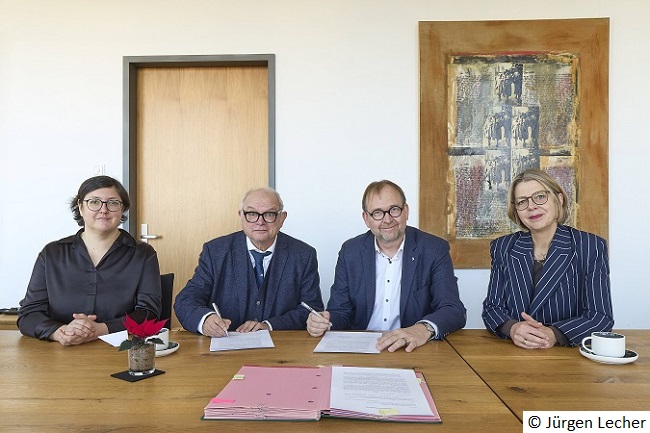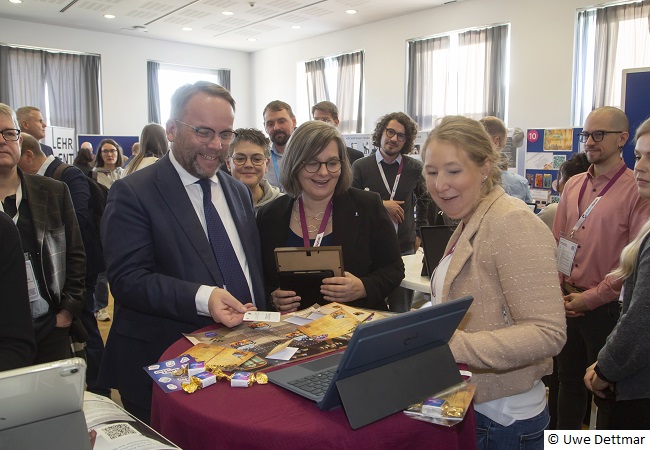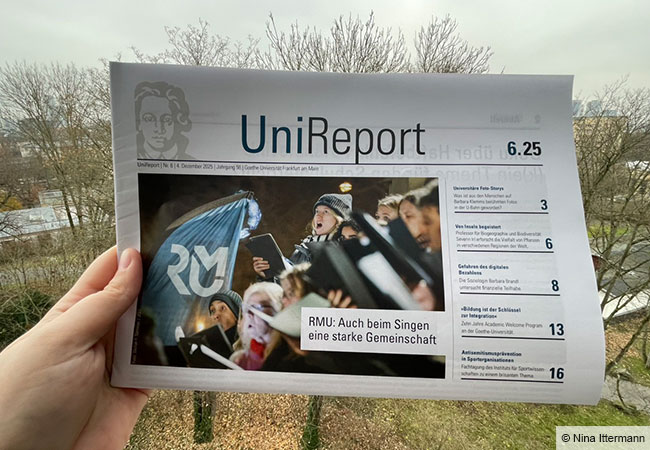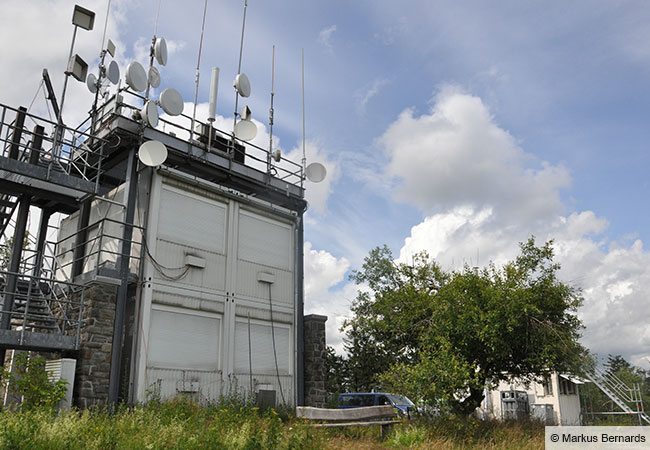The intellectual and artistic activities of Jews in Nazi Germany are the focus of a new joint doctoral program run by Goethe University Frankfurt, Europa-Universität Viadrina Frankfurt (Oder), and the University of Music Franz Liszt in Weimar.

The Hans Böckler Foundation is providing around €900,000 in funding for the interdisciplinary doctoral program „Broken Traditions? Jewish Literature, Philosophy and Music in Nazi Germany,“ jointly funded by the Europa-Universität Viadrina Frankfurt (Oder), Goethe University Frankfurt, and the University of Music Franz Liszt in Weimar. The funding was initially approved for 4.5 years.
From the 2024 summer semester onwards, nine doctoral students at all three universities will scientifically study the intellectual and artistic activities of Jews that were mediated, openly articulated, or illegally disseminated within Nazi Germany in response to the social disenfranchisement, exclusion, and ultimately the murder of large sections of European Jewry.
The PhDs will be supervised by Prof. Kerstin Schoor (German-Jewish Literary and Cultural History, Exile and Migration, Europa-Universität Viadrina Frankfurt (Oder)), Prof. Christian Wiese (Martin Buber Professorship for Jewish Philosophy of Religion, Goethe University Frankfurt), and Prof. Jascha Nemtsov (History of Jewish Music, University of Music Franz Liszt Weimar). The doctoral program will be based at the Selma Stern Center for Jewish Studies Berlin-Brandenburg.
The program’s cooperation partners are the Yad Vashem World Holocaust Remembrance Center’s International Institute for Holocaust Research, the Hebrew University of Jerusalem’s Franz Rosenzweig Minerva Research Center, the Leo Baeck Institute Jerusalem, and the Music Department of Haifa University’s Dr. Hecht Arts Center.
Scholarships will be announced at the end of August 2023. Interested applicants should contact their desired primary supervisor during September 2023, preferably no later than September 15. Scholarship applications will be considered in consultation with the Hans Böckler Foundation, and should be submitted by November 2, 2023.
The joint doctoral program in their words
„I am very pleased that this funding from the Hans Böckler Foundation will allow a specific thematic focus of the participating chairs and institutions to be deepened in an interdisciplinary collaborative project, and passed on to a new generation of scholars,“ says Prof. Dr. Kerstin Schoor, who, in addition to being the spokesperson of the new doctoral program, also serves as Chair of German-Jewish Literary and Cultural History, Exile and Migration at Europa-Universität Viadrina Frankfurt (Oder).
„Exploring the doctoral program’s thematic field from the perspective of the three participating disciplines promises not only insights into the past, but also informed discussions about the pressing challenges of our time – something I look forward to,“ says Prof. Dr. Christian Wiese, Director of the Frankfurt Buber-Rosenzweig Institute in Frankfurt.
In the same spirit, Prof. Dr. Jascha Nemtsov (Weimar) also welcomes the program as „a great opportunity to research the work of Jewish composers in Nazi Germany and to give their works back to contemporary musical life.“
The Hans Böckler Foundation „is pleased to be able to support nine dissertations on Jewish literature, philosophy and music in Nazi Germany in an interdisciplinary research context in its new doctoral college (PK057).“ It is supporting the program’s first funding phase with institutional and individual funding of around €900,000.
Background:
Forced by political censorship and a massive process of exclusion and persecution of Jews in Nazi Germany that began as early as 1933, the developments in literature, philosophy, and music at the time were characterized more strongly than in other periods by a (critical) reflection on traditional artistic-aesthetic, cultural, and religious traditions. For intellectuals, writers, and musicians of Jewish origin, the relationship to traditions of German, Jewish and European cultures became a crucial question of intellectual and artistic-aesthetic formation.
The program aims to expand the knowledge of Jewish cultural life in the increasingly separated Jewish cultural circle within Nazi Germany that emerged after 1933 in literary, philosophy and religious studies, as well as musicology. Framed by the common research question “Broken traditions?”, intellectual, literary and artistic-aesthetic references to tradition in the cultural life of German Jews of 1930s and early 1940s Nazi Germany will be subject to a critical re-reading.
In so doing, the doctoral program constitutes a response to a state of research that – in contrast to historiography – remains characterized by a widespread lack of representation of characteristic developments in the literature, philosophy, and music of Jewish intellectuals and artists in Nazi Germany, as well as a widespread lack of reflection on the reasons for the delayed history of reception of these intellectual and artistic activities, from the postwar years until the 1990s. In addition, and in a way that varies from discipline to discipline, the prevailing state of research was and in part still is characterized by a desolate source situation. The program thus constitutes part of the international efforts of Nazi and Holocaust research, within the framework of which it also lays claim to originality in its specific disciplinary composition as well as its content.









